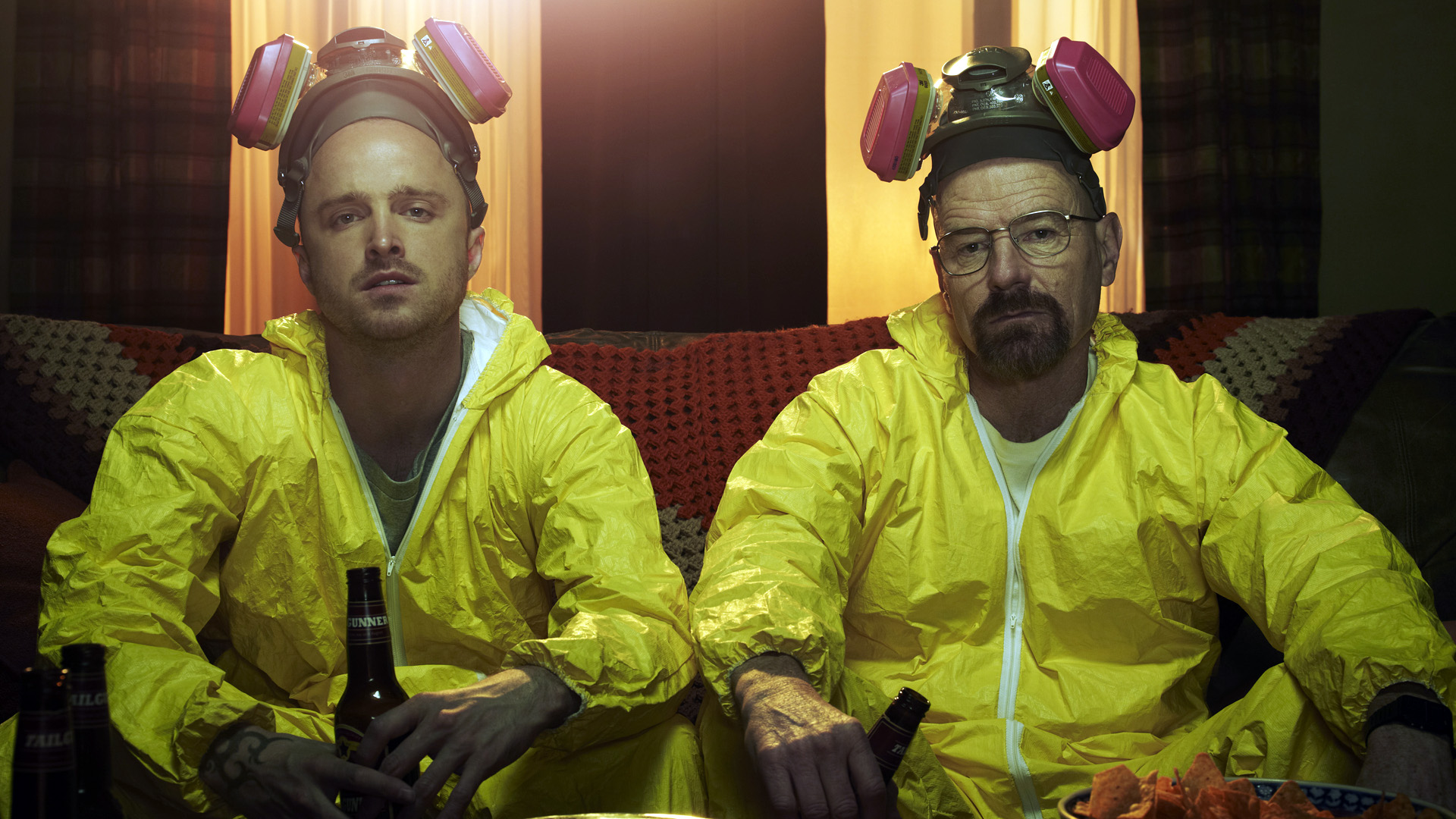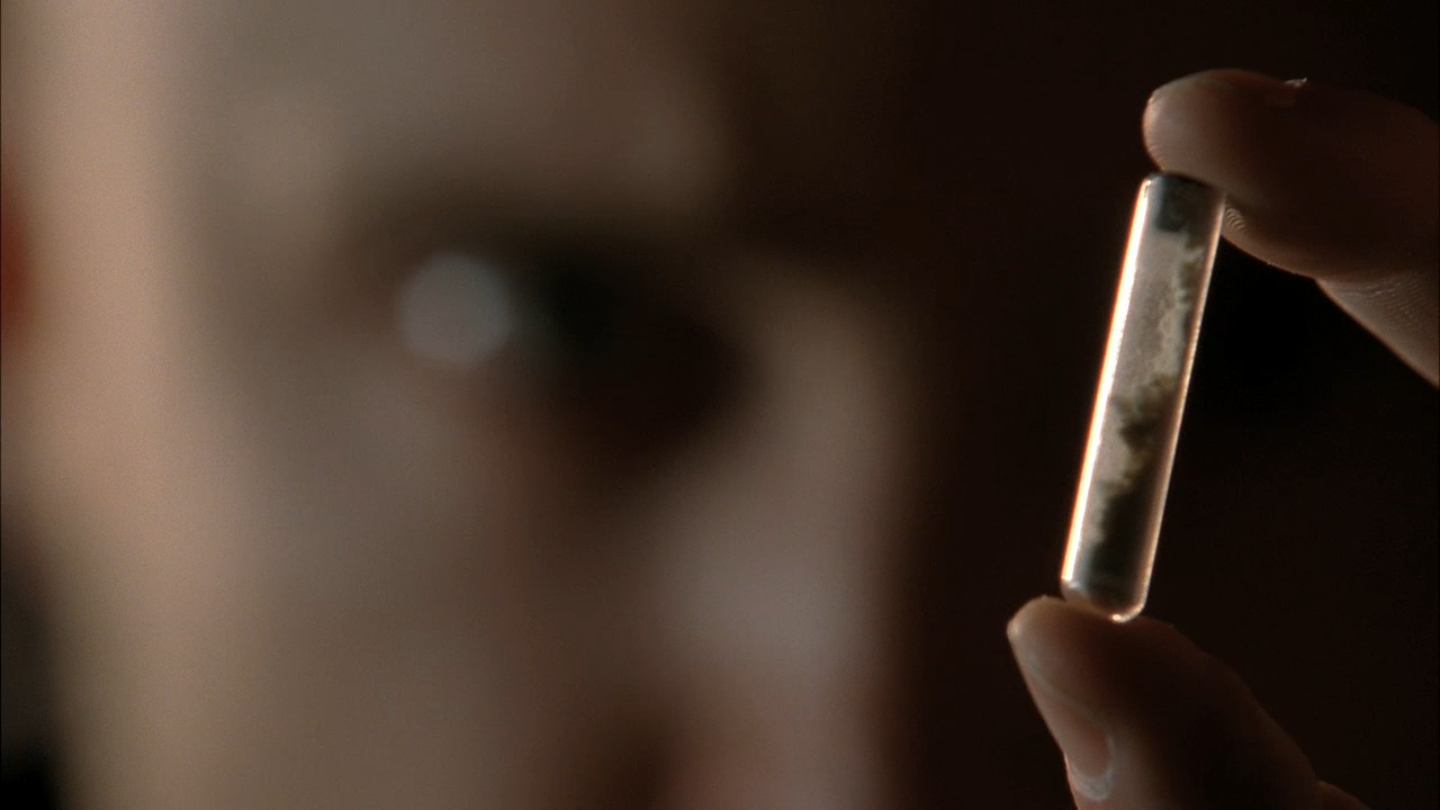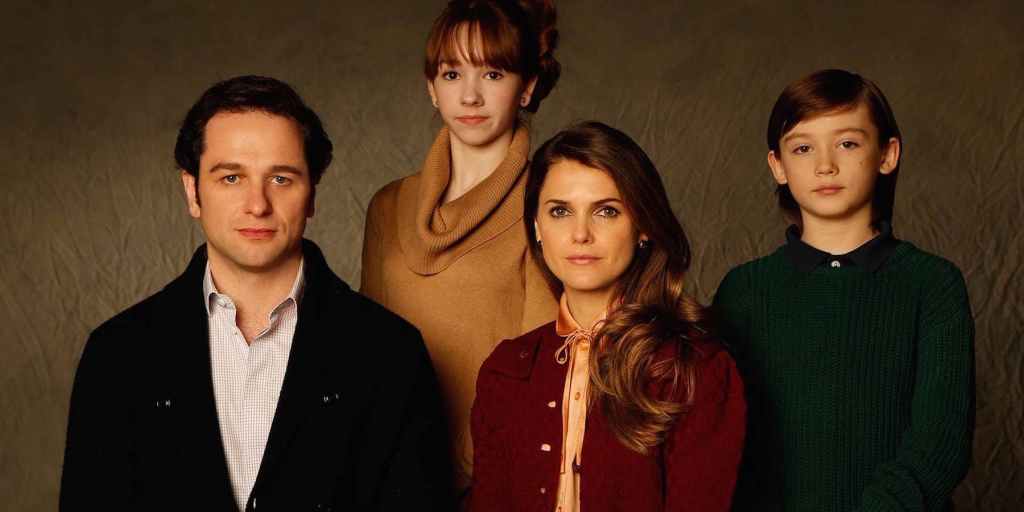First of all, let me be absolutely clear: I like Breaking Bad a lot. I consider it one of the best TV series of the millennium to date. It’s ambitious, smart, exceedingly well acted (with some exceptions in the minor parts), and it has a grasp of complex characterisation like few other series.
I also think that in some ways Breaking Bad is overrated. It’s not quite the perfect series it’s sometimes made out to be, and while it exceeds in many respects, there is room for improvement in others. Granted, I may be talking out of turn, as I haven’t yet finished the series; we’re five episodes away from seeing the last of Mr. White. However, as I’m currently rewatching the first four seasons in parallel to finishing season 5, I think I can safely address what I consider the series’ main flaw.
More than many of my favourite series, from The Sopranos via Six Feet Under to Deadwood, Breaking Bad is heavy on plot. It uses plot to talk about its characters, but it still puts a considerable focus on What Happens Next. This in itself isn’t a flaw; what is, in my opinion, is that while the characters develop in an interesting five-season arc, the season-to-season plotting undermines these arcs to some extent.

To a large extent, Breaking Bad is about Walter White oscillating between pathetic, disempowered male, anti-hero and outright villain, and the discrepancy between how he sees and presents himself and how the audience sees him. The tension between these different positions is always interesting, but the series spends a lot of its dramatic ammunition too early, moving Walt into villainous territory only to retcon him – or, more accurately, our view of him – in the following season to some extent (Warning: the following will spoil events up to and including season 5.)
One of Walter’s main crimes in the final season is the way he glibly accepts the murder of an innocent child as something that couldn’t be avoided and that, he thinks, wasn’t really his fault. We watch the scene and its aftermath and we see him as the monster he has become. However, is this act more monstrous than his watching as Jesse’s girlfriend Jane suffocates on her own vomit while she’s in a drug-induced stupor? Especially if we consider what Jane’s death leads to, namely an air crash that kills hundreds. No, Walt doesn’t pull any triggers – but then he rarely does when he’s at his worst, does he? – but his actions lead to those deaths, both the more abstract hundreds of victims of the crash and the more immediate death of Jane. As in season 5, his reaction is to rationalise his actions and his involvement, coming to the conclusion that he is not to blame. Is this more villainous in season 5 because we see the victim, a young boy on his BMX bike? Or is the series suggesting that people may not remember season 2 and the beginning of season 3 (if indeed they were watching Breaking Bad at the time) and the point needed to be reinforced?
There are other points in the overall narrative that hit similar points – Walt getting Jesse to kill Gale, a defenseless and relatively innocent man, for instance – that in the context of their seasons and the surrounding episodes make perfect sense, but when you look at the overall narrative beats they feel like we’re revisiting ground that has previously been covered. It makes some sense if you consider that audiences watching the series on TV would have several month-long breaks between seasons, so there’s a purpose to treading old ground – but in hindsight several mini-arcs feel redundant in terms of how they develop the characters. They feel like the makers of Breaking Bad either didn’t know where they were taking the series, or they didn’t know how many seasons they had left to tell their story. Especially Walter White’s overall arc almost depends on the viewers forgetting or ignoring where the series had previously taken its characters and how far they’d progressed into full-on villain country.

The fact that Breaking Bad still works eminently well is largely due to its stars; even when revisiting old ground, Bryan Cranston and Aaron Paul’s performances feel fresh and immediate. The same is true for Anna Gunn’s Skylar, although arguably the series and its writing have been less generous to her at times; rewatching the previous seasons, I was struck by how similar her arc in the first half of season 5 is to how she developed in season 3, yet Gunn delivers a great performance. Nonetheless, if it were possible to go back and redo Breaking Bad, it’s the overall plotting that would require attention. If my suspicion is correct and vince Gilligan didn’t always know from one season to the next if the series would be renewed plotting accordingly, it’s understandable that he would have aimed for arcs that hit certain character beats, not knowing whether he’d get another chance later to do so – but it did leave him with characters whose overall arcs have built-in redundancies. While this makes for clever design, it makes for slightly frustrating storytelling. More so because there are so many things Breaking Bad does not just well but better than almost any other TV series.
And that’s before we even mention The Awkward Case Of The Ricin Cigarette – so let’s leave it at that.

P.S.: Another thing that I’ve realised while rewatching especially season 1: Marie Schrader may just be the character that benefitted most from the series’ evolution over the course of its five seasons. In season 1, she is a two-dimensional character at best, slipping at times into flat caricature; by the final season, she is as rounded, complex and capable of tragedy as any of the main characters. While I may see this as something of a flaw of early Breaking Bad, in this case I prefer to look at it the other way around: the series definitely got better over time. This is also clearly seen in its villains: there’s no comparison between psychotic Tuco “Loony Tunes” Salamanca and the much more nuanced Gustavo Fring.







